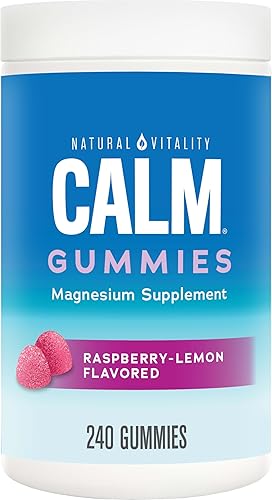Ulcerative colitis (UC) presents a challenging landscape for those affected, characterized by chronic inflammation of the colon and rectum, which can profoundly affect daily life. While medical interventions can play a role in managing UC, recent research underscores the significance of a multifaceted approach that includes not only traditional treatments but also complementary strategies aimed at addressing stress and enhancing overall well-being. As our understanding of UC evolves, it becomes increasingly clear that integrating stress management techniques, natural supplements, and lifestyle adjustments into the treatment regimen can yield notable benefits for individuals navigating this condition. In this comprehensive guide, we embark on an exploration of diverse strategies tailored to empower those with Ulcerative Colitis, offering insights and practical advice to facilitate the effective management of symptoms and the cultivation of a healthier, more balanced life.
Understanding Ulcerative Colitis
Before exploring the intricate relationship between stress and ulcerative colitis, it’s imperative to grasp the underlying nature of this complex condition. Ulcerative colitis manifests as a chronic inflammatory bowel disease, characterized by persistent inflammation of the colon and rectum. This inflammatory process arises from an aberrant immune response within the gastrointestinal tract, a culmination of genetic predispositions, environmental influences, and immunological factors.
Central to the pathology of ulcerative colitis is an immune system gone awry, wherein the body’s defense mechanisms mistakenly target the lining of the colon and rectum, provoking inflammation and tissue damage. While the precise etiology remains elusive, it is widely acknowledged that a convergence of genetic susceptibilities and environmental triggers, such as diet, lifestyle, and microbial imbalances, contributes to disease onset and progression.
Within this intricate interplay of factors, stress emerges as a significant modulator of disease activity in ulcerative colitis. Stress, whether physiological or psychological in nature, has been shown to exert profound effects on the immune system and gastrointestinal function. By amplifying the body’s inflammatory response, stress can exacerbate existing inflammation in the colon, intensify symptoms, and precipitate disease flares in susceptible individuals.
The Impact of Stress on Ulcerative Colitis
The impact of stress on Ulcerative Colitis is profound, with stress serving as a significant trigger for flare-ups and exacerbation of symptoms in individuals grappling with this chronic inflammatory bowel disease. When the body encounters stressors, whether they be emotional, psychological, or physiological, it initiates a cascade of hormonal responses, including the release of cortisol and adrenaline. These stress hormones can have far-reaching effects on various physiological systems, including the immune and gastrointestinal systems. In the context of Ulcerative Colitis, this physiological response to stress can lead to heightened inflammation within the colon and rectum, exacerbating existing inflammation and precipitating flare-ups of UC symptoms.
Moreover, chronic or persistent stress can contribute to a cycle of inflammation and symptom exacerbation in individuals with UC, further complicating disease management and impacting overall quality of life. Beyond its direct effects on inflammation, stress can also disrupt the delicate balance of the gut microbiota, impair intestinal barrier function, and influence gut motility and secretion. These stress-induced alterations in gut physiology can exacerbate intestinal inflammation, increase intestinal permeability, and contribute to tissue damage in individuals with UC. As such, addressing stress management is paramount in the comprehensive care and management of UC, with strategies aimed at mitigating stressors and promoting psychological well-being playing a crucial role in optimizing disease outcomes and enhancing overall quality of life for those living with UC.
Natural Supplements for Stress Management in Ulcerative Colitis
In addition to stress management techniques, incorporating natural supplements into the treatment plan can offer individuals with Ulcerative Colitis a holistic approach to managing stress and alleviating symptoms. These supplements harness the power of nature to support the body’s response to stress and inflammation, potentially enhancing overall well-being. Below, we explore several natural supplements that may help individuals with UC better cope with stress and improve their quality of life.
Omega-3 Fatty Acids: Found abundantly in fish oil supplements, omega-3 fatty acids are renowned for their potent anti-inflammatory properties, which hold promise in quelling inflammation within the gut. Emerging research indicates that supplementing with omega-3 fatty acids may not only mitigate inflammation but also yield improvements in the array of symptoms experienced by individuals with UC, offering a potential avenue for enhanced disease management and relief.
Probiotics: Probiotic supplements harbor a diverse array of beneficial bacteria that have the potential to restore equilibrium to the gut microbiota, thereby fostering an environment conducive to reduced inflammation and improved symptomatology in UC patients. Scientific inquiry has underscored the efficacy of certain probiotic strains in ameliorating UC symptoms, highlighting the therapeutic potential of these microbial allies in the management of this chronic inflammatory condition. With over 100 humana clinical trials, Visbiome High Potency Probiotics has been recognized as a leading probiotic for the treatment of Ulcerative Colitis.
Food should be our primary source of probiotics, with fermented foods leading the way. To delve into the benefits of fermented foods, check out 9 Fermented Foods for Enhancing Ulcerative Colitis and Gut Health.
Magnesium: Playing a pivotal role in numerous physiological processes, magnesium emerges as a key player in stress management and overall well-being for individuals grappling with UC. By virtue of its involvement in regulating stress hormones, magnesium supplementation may afford UC patients with a means to alleviate stress and anxiety, potentially contributing to enhanced psychological resilience and improved disease outcomes.
Ashwagandha: Revered in traditional medicine for its adaptogenic properties, ashwagandha emerges as a promising botanical ally in the quest to combat stress and bolster resilience in individuals with UC. Contemporary research suggests that ashwagandha supplementation may confer tangible benefits in stress reduction and adaptation, offering a natural and holistic approach to stress management for Ulcerative Colitis patients seeking to fortify their coping mechanisms.
Rhodiola Rosea: Another esteemed adaptogenic herb, rhodiola rosea, has garnered attention for its potential to assuage stress and fatigue, thereby nurturing overall well-being in individuals contending with UC. Clinical investigations have demonstrated the capacity of rhodiola rosea supplementation to ameliorate stress-related symptoms, offering a compelling adjunctive strategy for UC patients striving to enhance their quality of life amidst the challenges posed by this chronic inflammatory condition.
Stress Management Strategies for Ulcerative Colitis
In addition to natural supplements, integrating stress management techniques into daily life can significantly enhance the well-being of individuals living with Ulcerative Colitis by empowering them to better cope with stress and mitigate inflammation. Incorporating these effective strategies into one’s routine not only fosters resilience but also promotes a sense of control over the impact of stress on their health. Below are some tried-and-tested methods for managing stress in the context of UC:
Mindfulness Meditation: Cultivating mindfulness through meditation involves cultivating present-moment awareness and non-judgmental acceptance of one’s thoughts, feelings, and bodily sensations. Mindfulness meditation has been shown to reduce stress, enhance emotional well-being, and even modulate inflammatory processes in the body, offering Ulcerative Colitis patients a potent tool for stress management and symptom relief. If you’re new to mindfulness meditation, Wherever You Go, There You Are: Mindfulness Meditation in Everyday Life is a great book to get you started.
Deep Breathing Exercises: Engaging in deep breathing exercises, such as diaphragmatic breathing or paced breathing, can activate the body’s relaxation response, counteracting the physiological effects of stress. By consciously slowing down and deepening the breath, individuals with UC can induce a state of calm and relaxation, effectively reducing stress levels and promoting overall well-being.
Yoga: Incorporating yoga into one’s routine offers a holistic approach to stress management, combining physical postures, breathwork, and meditation to foster relaxation and resilience. Practicing yoga has been associated with reductions in stress, anxiety, and inflammation, making it a valuable therapeutic modality for individuals navigating the challenges of Ulerative Colitis.
Regular Exercise: Engaging in regular physical activity is not only beneficial for physical health but also plays a crucial role in managing stress and promoting emotional well-being. Whether it’s brisk walking, cycling, or swimming, finding enjoyable forms of exercise can help individuals with UC alleviate stress, boost mood, and enhance overall quality of life.
Cognitive-Behavioral Therapy (CBT): CBT is a psychotherapeutic approach that focuses on identifying and modifying negative thought patterns and behaviors associated with stress. By teaching individuals to challenge and reframe unhelpful beliefs, CBT equips UC patients with practical skills for managing stress and enhancing coping mechanisms, ultimately leading to improved emotional resilience and symptom management.
By incorporating these effective stress management techniques into their daily lives, individuals with UC can cultivate greater resilience, reduce inflammation, and improve overall well-being, empowering them to navigate the challenges of living with a chronic inflammatory condition more effectively and with greater ease.
Closing Thoughts: Stress Management and UC Care
Though medical interventions can be needed for Ulcerative Colitis management, integrating stress management techniques, natural supplements, and lifestyle adjustments can offer supplementary benefits for individuals with this condition. By embracing these holistic approaches, UC patients may find relief from inflammation, symptom alleviation, and enhanced well-being. It’s imperative for healthcare providers to recognize the significance of stress management and natural supplements in the holistic care of UC patients, tailoring recommendations to suit individual needs and preferences.



